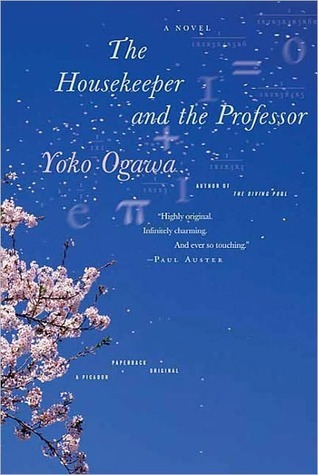More on this book
Community
Kindle Notes & Highlights
He had a special feeling for what he called the “correct miscalculation,” for he believed that mistakes were often as revealing as the right answers.
but I knew instantly that it was a portrait of me. I imagined the Professor hurrying to draw this likeness before the memory had vanished. The note was proof of something, that he had interrupted his thinking for my sake.
And yet, the room was filled by a kind of stillness. Not simply an absence of noise, but an accumulation of layers of silence, untouched by fallen hair or mold, silence that the Professor left behind as he wandered through the numbers, silence like a clear lake hidden in the depths of the forest.
“The truly correct proof is one that strikes a harmonious balance between strength and flexibility. There are plenty of proofs that are technically correct but are messy and inelegant or counterintuitive. But it’s not something you can put into words—explaining why a formula is beautiful is like trying to explain why the stars are beautiful.”
I traced the trail of numbers from the ones the Professor had written to the ones I’d added, and they all seemed to flow together, as if we’d been connecting up the constellations in the night sky.
The Professor was right: my birthday and his watch had overcome great trials and tribulations to meet each other in the vast sea of numbers.
Solving a problem for which you know there’s an answer is like climbing a mountain with a guide, along a trail someone else has laid. In mathematics, the truth is somewhere out there in a place no one knows, beyond all the beaten paths. And it’s not always at the top of the mountain. It might be in a crack on the smoothest cliff or somewhere deep in the valley.”
“A problem has a rhythm of its own, just like a piece of music,” the Professor said. “Once you get the rhythm, you get the sense of the problem as a whole, and you can see where the traps might be waiting.”
“Always show your work, and do it neatly.” “I usually just scribble on the back of scrap paper.” “But every formula and every number has meaning, and you should treat them accordingly, don’t you think?”
“I’m mad because you didn’t trust him. I’ll never forgive you for that.”
“The mathematical order is beautiful precisely because it has no effect on the real world. Life isn’t going to be easier, nor is anyone going to make a fortune, just because they know something about prime numbers.
“Eternal truths are ultimately invisible, and you won’t find them in material things or natural phenomena, or even in human emotions. Mathematics, however, can illuminate them, can give them expression—in fact, nothing can prevent it from doing so.”
I needed the sense that this invisible world was somehow propping up the visible one, that this one, true line extended infinitely, without width or area, confidently piercing through the shadows. Somehow, this line would help me find peace.
In my imagination, I saw the creator of the universe sitting in some distant corner of the sky, weaving a pattern of delicate lace so fine that even the faintest light would shine through it. The lace stretches out infinitely in every direction, billowing gently in the cosmic breeze. You want desperately to touch it, hold it up to the light, rub it against your cheek. And all we ask is to be able to re-create the pattern, weave it again with numbers, somehow, in our own language; to make even the tiniest fragment our own, to bring it back to earth.
Though there was no circle in evidence, π had descended from somewhere to join hands with e. There they rested, slumped against each other, and it only remained for a human being to add 1, and the world suddenly changed. Everything resolved into nothing, zero.


